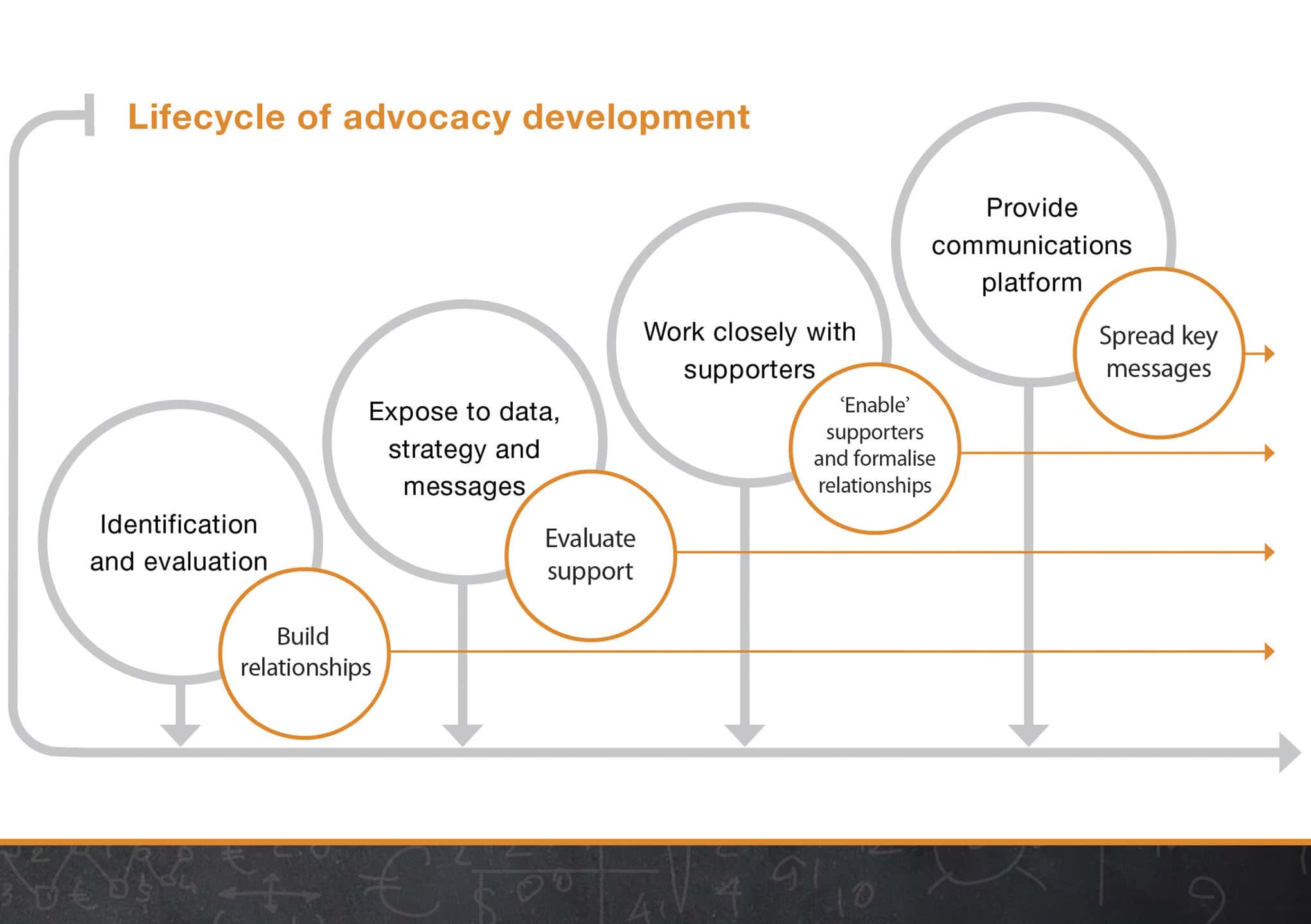 Advocates who can act as spokespeople for your brand and provide feedback on your strategy and tactics are a valuable asset and need to be treated with respect, honesty and transparency. In fact, having open and honest relationships with your key opinion leaders (KOLs) is crucial to launching and growing a successful brand and is an important element of any business plan.
Advocates who can act as spokespeople for your brand and provide feedback on your strategy and tactics are a valuable asset and need to be treated with respect, honesty and transparency. In fact, having open and honest relationships with your key opinion leaders (KOLs) is crucial to launching and growing a successful brand and is an important element of any business plan.
Some of the issues that such advocates can help you with include:
- Engaging with your target audience in a direct (peer-to-peer) and meaningful way
- Encouraging brand awareness and brand acceptance among fellow healthcare professionals
Facilitating market access for your product by providing you with a favourable independent voice when it comes to funding decisions. - It should also be remembered that advocacy development and usage are not just reserved for launch; rather, they should be valued throughout the life cycle of the product and thus managed appropriately and within the scope of their own life cycle (see figure below).

Measurement
In today’s cost- and time-sensitive times, it is important that advocacy and our relationships with investigators are subject to the same – or at least similar – value-for-money measures to which other investments would be subject. When it comes to advocacy, return on investment is perhaps not so straightforward, but there are some metrics – both qualitative and quantitative – that can be applied. Quantitative measures might include:
- An agreement/contract in place to participate in a stated number of programme activities
- The provision of written feedback on presentations or discussions
- Assistance with study enrolment/publications/congress activities.
Qualitative measures might include the advocate being viewed positively by his or her peers.
Setting up an advocacy programme
The type of programme you decide to undertake with your advocates will, of course, depend on your specific market and on the position of your product in its life cycle. In all cases, you will need to define your objective, apply a robust strategy and plan carefully. Programme types are multiple and varied, and if you have a KOL or group of KOLs in mind, it is important to match your programme with their strengths and career status. Programmes might include:
- Awards panels
- Rising star academies
- Continuing medical education activities
- Debating societies
- Educational faculties
- Policy steering committees.
Recruitment
So how does one identify the right advocates and advocate mix in order to support and promote the brand? A first step is to define a set of criteria. For example, these might include advocates who are:
- Highly knowledgeable and keen to share information with their peers
- Influential and viewed positively by their peers
- Good communicators (either as chairs, speakers or both) – potentially to patients, patient organisations and payers, as well as to other healthcare professionals.
Most likely, you will know some of – even most of – your potential advocates. But if you or your company is new to a therapy area, you may wish to use KOL profiling or mapping to help identify the right candidates. KOL mapping can include both traditional and novel means of identification.
Traditional: Identifying academic activities in terms of publication record, volume and impact of literature, conferences, papers and posters; involvement in journals, learned societies, guidelines and clinical research; and engagement with industry.
Novel: Identifying social media activities – in terms of involvement, scope and impact – via LinkedIn, Twitter, YouTube, ResearchGate, etc.
A composite measure, eg the Porterhouse Index, can be created to capture an individual’s score, which can be weighted according to your specific objectives.
Role of med comms agencies
Med comms agencies can have an important role to play in helping you achieve the best outcome for your company and the advocate. Experienced agencies will ensure that no single advocate is overused or forgotten, define and communicate the expected participation levels, foster trust and loyalty, and help align advocates by interests and abilities. In addition, they can help handle mundane activities such as contracting.
Evaluating the success of a programme
At the outset of any new programme, a set of key performance indicators should be developed to evaluate the value for money of the endeavour. This could range from fairly simple in scope, eg number and quality of publications, to complex, eg the impact on social media.
Successfully exiting a programme
Advocacy programmes should not be left to wither and die. It is best practice to put in place an exit strategy ahead of time so that advocates know the limitations on their terms and length of service. The development of a charter is an elegant way of doing this and should be a key step when first establishing a programme.
Brian Parsons is Joint Managing Director at Porterhouse Medical Group





